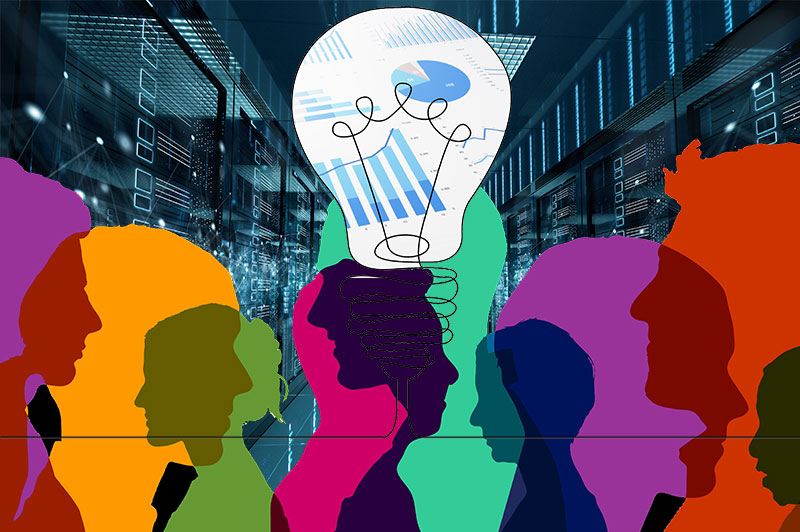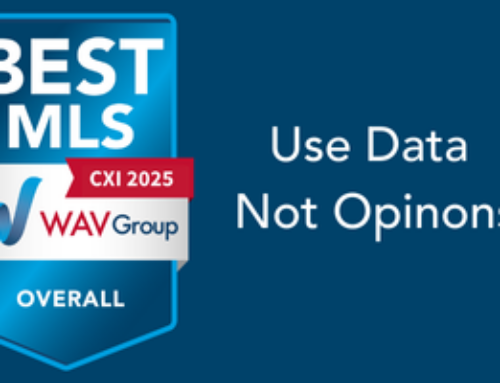
There are specific characteristics or values needed to realize the benefits of a data-driven organization. These values support people’s critical thinking and exploration within their roles in an organization. Allowing this freedom of curiosity expands people’s ability to think of how data can nurture successes in their day-to-day activities. They become your data citizens who understand the value of data as an asset.
The below video is of Sam Yagan, CEO of ShopRunner. Mr. Yagan talks about how ShopRunner has built its culture in an interview with McKinsey and Company.
Leadership Participation
Let’s expose the elephant in the room. Responsibility for a data-driven culture does not fall on technology leadership. Executive Leadership is where inspiration and motivation originate from engaging any cultural transformation. Cultivating a data-driven culture is no exception to the rule.
An essential value for Leadership is to lead by example. Cultural transformations are only successful if Leadership plays the role of a participant and not just a sponsor. The mindset of being data-driven has a cascade effect throughout the organization when it commences from the top.
Leadership at all levels becomes fully engaged when practiced with a data-savvy mindset with their direct reports. Adoption occurs when Leaders consistently reinforce the importance of data within the organization. Here are a few examples of how Leaders can display the importance of data:
- Question others about data points and expect data-driven discussion.
- Usage of data to validate and authenticate decisions
- Communicate results and outcomes achieved form data-driven decision making.
- Allocate time to attend data-skills training with your digital citizens.
Story
Change of Leadership is another method to strengthen a data-driven culture. Brent Dykes, a Forbes contributor, wrote about a scenario he experienced with a technology company when a division had a change of Leadership. A new data-driven Leader in the organization had asked his three managers to give data insights regarding each of their respective business areas. Since their previous Leader never requested this type of input, two of the managers went into panic mode and did not deliver. The third manager was a data-driven and was already using data to run his team. The third manager shined like a star and garnered trust from the new Leader.
Find people who have strong skillsets, a mindset to shift, and are willing to sharpen their pencils. Empower these Leaders and data citizens as evangelists to send a clear message that data-driven matters to the organization.
Democratize Data
Everyone in the organization needs transparent access to data and understanding of how their activities stimulate change in the organization. Under this tenet, a critical challenge in democratizing data is tearing down the silos of data and processes.
Data silos are commonplace, not only in their location within technology but within the confines of an organization’s business units. It is necessary to weed out the governance shroud of these silos and gain the benefits of open data.
Solutions for breaking down data silos are available to any size firm. Cloud services offer affordable automation of the processes, as compared to the cost barriers that were prevalent just three years ago.
The benefits found in the democratization of data serves the company in many ways.
- It creates a single source of truth from multiple data sources.
- It improves people’s work efficiency to focus on higher-value activities.
- Trust, gained through the transparency of the processes across the organization.
- Clear insights to ensure data privacy is respected, and data is appropriately secured.
Data Literacy
Data-driven organizations gain data citizens by closing the data literacy gap between technology and the business. Bridging this gap is a common theme with active data-driven cultures. The data literacy gap is also a common cause of failure in building a data-driven culture.
Harvard Business Review Analytic Services surveyed 469 global companies in July 2019. The survey revealed fifty-eight percent of executives acknowledged their data citizens did not have the skills or training to deliver informed business insights on their data analysis.
Training and on-going data workshops are critical in a data-driven culture. Great data citizens need to have:
- Strong knowledge of the data
- The awareness of new or changes in the data changes
- A clear understanding of how to interpret data
- A level of curiosity and critical thinking to question the data.
Qlik, a leader in Analytics and Business Intelligence platforms, and other companies founded the Data Literacy Project. The project’s mission is to:
“future-proof our workforces. And together we will share the tools required to nurture lifelong data literacy and accelerate smarter use. We can shape a successful data-literate, free-thinking and speaking culture for all. We can all Be Data Brilliant.”
The web site has a great assessment tool to see where you rank as a data citizen. Out of curiosity, I took the assessment. Afterward, I was impressed to find an action list of additional training to improve my data literacy to the next level.
Take the assessment for yourself. See if you can beat my “Data Knight” standing.
WAV Group will continue a series of articles to obtain insights into the building of a data-driven culture. In the meantime, call Victor, Marilyn or David to discuss their thoughts about how a data-driven culture can transform your company.





Great article. I was happy to hear Mr Yagan mention the hiring process because I think having a diverse workforce is critical to making all of the other things discussed in this article happen at an optimal level. Obviously the data itself is important, but it is extremely important to have diverse views at the table on how to interpret the data and make move-forward decisions from it.
Hi Sara: Thank you for your comment. I agree diversity is key in an organization’s culture. My optimistic view comes from companies who strive to garner the benefits of decision-making from data, must double-clutch to be more diverse. Without diversity, they remain stuck in silos within all areas of their business.